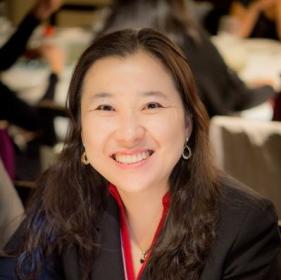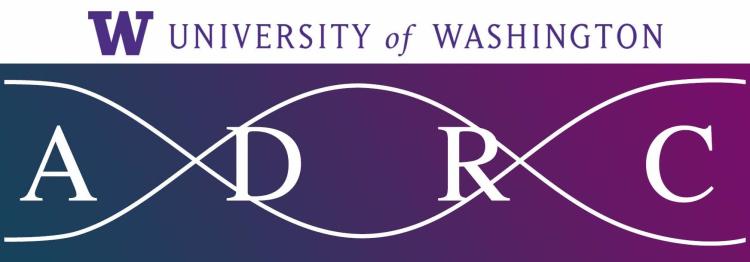Katherine Lopez and Genevieve Wanucha
Eun Jeong “EJ” Lee, PhD, is the founder and president of the Asian American Resource and Information Network, Inc. (AARIN), a nonprofit organization that runs initiatives to support wellbeing in Asian communities. She is a current member of our Community Advisory Board. Dr. Lee brings over two decades of experience in ensuring that community perspectives are represented in research and health policy decisions. She can also offer insights from her own family experience with dementia and caregiving.

Eun Jeong Lee
As a “long-distance daughter,” Dr. Lee stays in close contact with her mother in Korea who lives with dementia. “Although I live far away from my mother, I feel incredibly blessed that modern technology allows us to stay connected,” she says. “Thanks to video calls, we can see each other’s faces, share smiles, and maintain a sense of closeness despite the physical distance. This has been especially meaningful because it enables my mother to recognize me and feel my presence, even when I can't be there in person. I am truly grateful for this gift of connection that technology provides.”
Dr. Lee had always planned to return to her home country of Korea after earning her PhD in Social Welfare from Yeshiva University in New York, which she finished in 2009. However, after starting a family, she became involved in community advocacy, particularly for underserved populations. Her early volunteer work with Korean Americans impacted by domestic violence opened her eyes to the challenges of language barriers and lack of resources. Her later work focused on aging populations, where she saw a significant gap in research on Asian American, Native Hawaiian, and Pacific Islander (AANHPI) communities, especially around Alzheimer’s and dementia.
Through the UW ADRC CAB, she can bring community voices into discussions about UW Alzheimer’s research goals, advocating for better representation of AANHPI communities in both research and healthcare settings. “My role is to make connections between communities and academic research or policy,” she says. “I can bring the community voices, including my observations and experience. At the same time, I can communicate the importance of data collection and research to the community.”
The most serious community challenges discussed in the CAB include language barriers, obstacles to healthcare access and long-term care, and the financial burden of caregiving in the US. With this knowledge, the ADRC can create more culturally relevant and engaging outreach strategies and shape research study goals.
Dr. Lee says that the ADRC CAB allows her to collaborate with people of diverse backgrounds, including Asian, Native American, and Hispanic individuals. “I learn a lot from perspectives and experiences of CAB members. It’s a relief to me to know that we are not alone in having challenges in our communities. I feel like we can work together,” says Dr. Lee. •





